Are you considering leaving your job during the probation period? Crafting a resignation letter that professionally communicates your decision can make a lasting impression. It's essential to strike the right balance between honesty and professionalism, ensuring you leave on good terms. Dive into our comprehensive guide for tips and a practical template that will help you navigate this important step in your career!
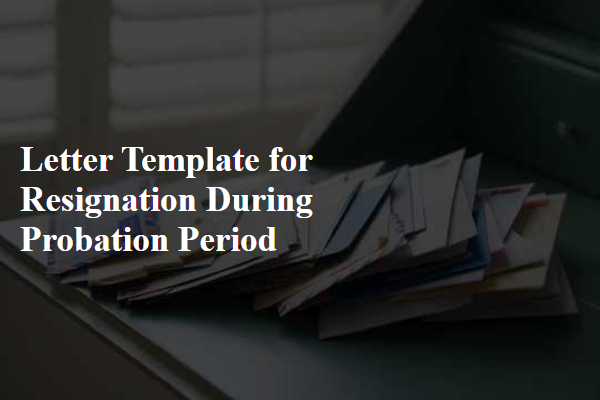
Clear Intent to Resign
During the probation period, an employee may decide to resign from their position due to various reasons such as personal circumstances or job fit. A resignation letter should clearly state the intention to resign, typically including the employee's name, job title, and the date of the resignation notice. In many companies, a notice period of one week (or as specified in the contract) is customary. The resignation letter should maintain a professional tone, express gratitude for the opportunity, and may briefly mention the reason for leaving, ensuring to uphold a positive relationship with the employer for future references or opportunities.
Effective Last Working Day
During the probation period, a resignation may occur for various reasons, such as dissatisfaction with the work environment, personal circumstances, or better job opportunities. Typically, this period lasts between three to six months. Effective last working day is crucial information; it usually aligns with the company's notice period, potentially one or two weeks. Formal communication to human resources or the direct supervisor is common practice. Documenting this decision in a written format, such as an email or letter, ensures clarity. Closing thoughts may express gratitude for the opportunity and acknowledgment of the company's efforts in hiring and onboarding.
Gratitude for Opportunity
During the probation period at XYZ Company, a remarkable opportunity unfolded, cultivating my professional development and providing insights into the dynamic environment within the tech industry. Gratitude resonates deeply for the supportive colleagues who contributed to a rich learning experience. Engaging in diverse projects, including the innovative software solutions aimed at improving customer satisfaction, allowed for personal growth and skill enhancement. Reflecting on the invaluable experience gained during these early months, a decision to explore new challenges aligns with career aspirations. The chance to collaborate with passionate teams has been instrumental, and every lesson learned will shape future endeavors in the professional landscape.
Offer to Assist with Transition
During a probation period at a company (typically lasting 30, 60, or 90 days), an employee may decide to resign for various reasons. This decision can stem from personal circumstances, job role dissatisfaction, or a better opportunity. Providing notice during this phase is a respectful approach to leave on good terms. Expressing willingness to assist with the transition is critical. This may include training a replacement, documenting responsibilities, or completing outstanding projects. Such gestures enhance professional relationships and maintain a positive reputation within the industry, which is crucial for future career opportunities. Returning company property and ensuring a seamless handover adds to the transition's smoothness, benefiting both the departing employee and the employer.
Professional Contact Information
Resigning during a probation period should be handled with care to maintain professionalism. Craft an effective resignation letter that succinctly expresses your decision while ensuring all pertinent details are covered. It should include your professional contact information at the top, followed by the date and the recipient's information. Clearly state your intention to resign and the reason, if appropriate. Keep the tone respectful and concise, and consider expressing gratitude for the opportunity. Offer to assist during the transition period. End with your signature and printed name.
Letter Template For Resignation During Probation Period Samples
Letter template of resignation during probation period due to personal reasons
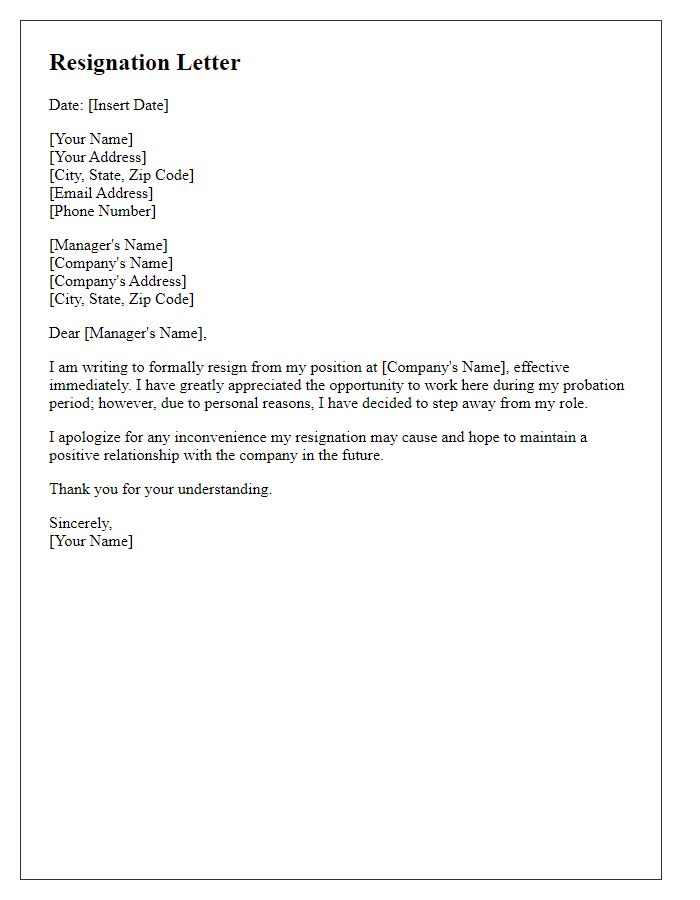
Letter template of resignation during probation period for better opportunity
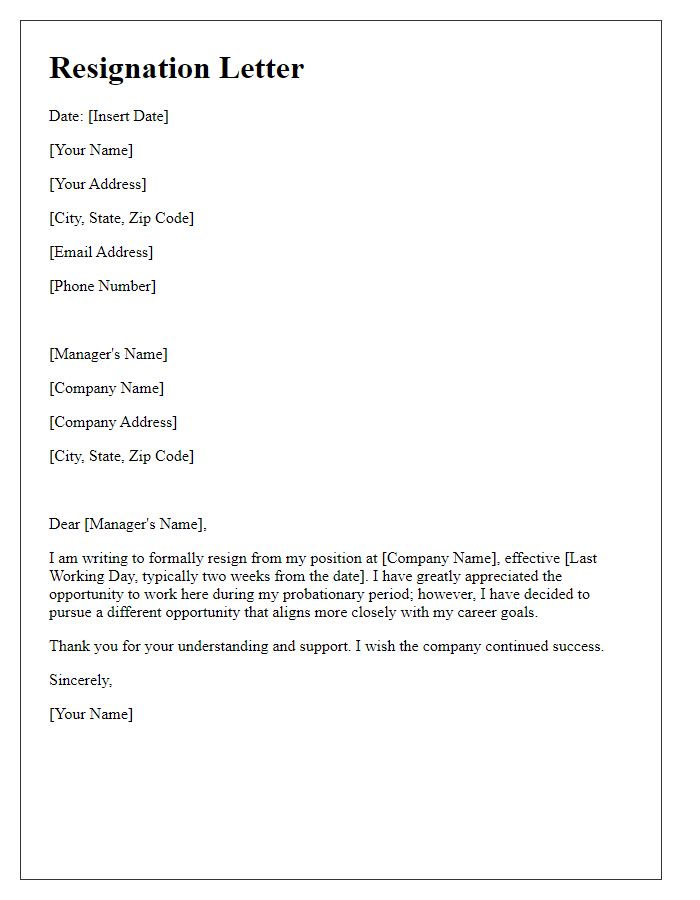
Letter template of resignation during probation period related to health issues
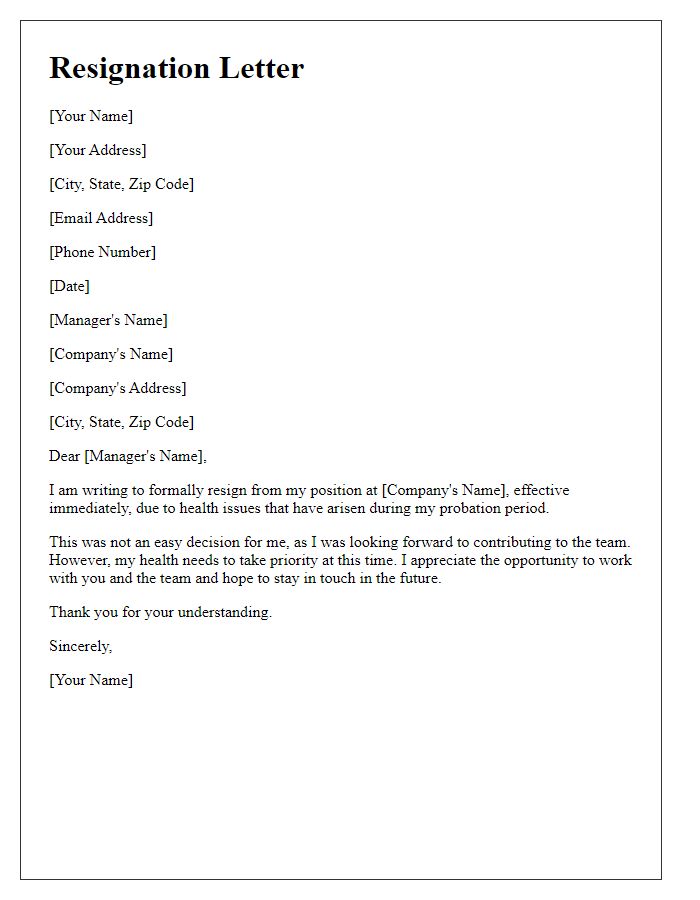
Letter template of resignation during probation period for family commitments
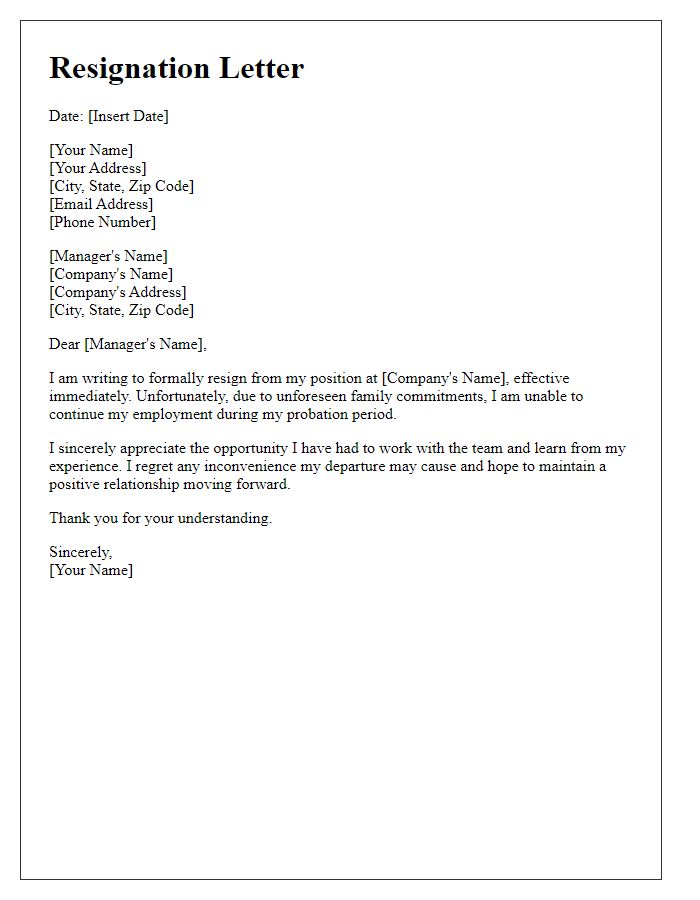
Letter template of resignation during probation period to pursue education
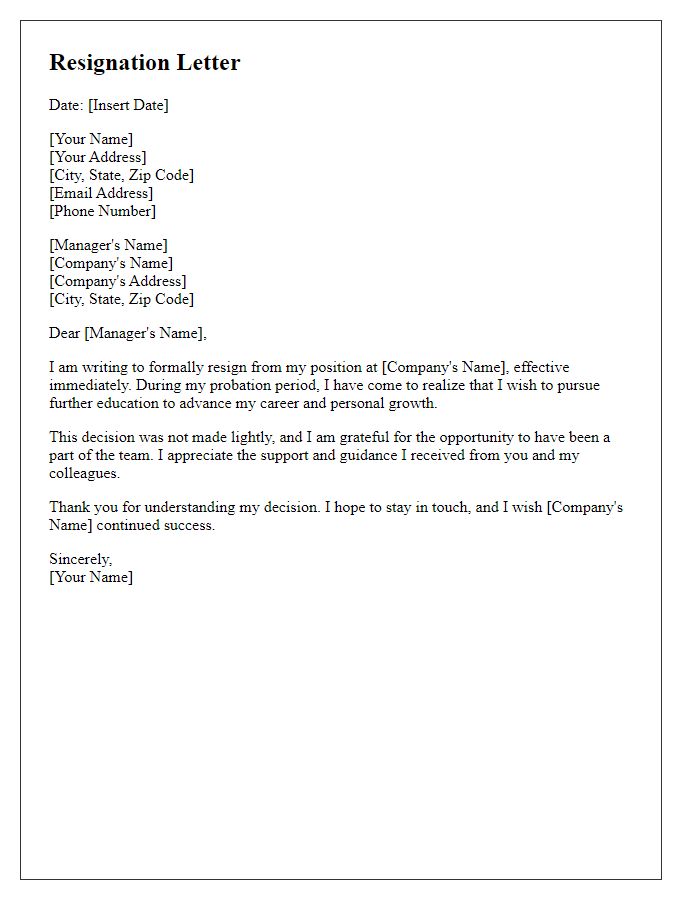
Letter template of resignation during probation period because of job dissatisfaction
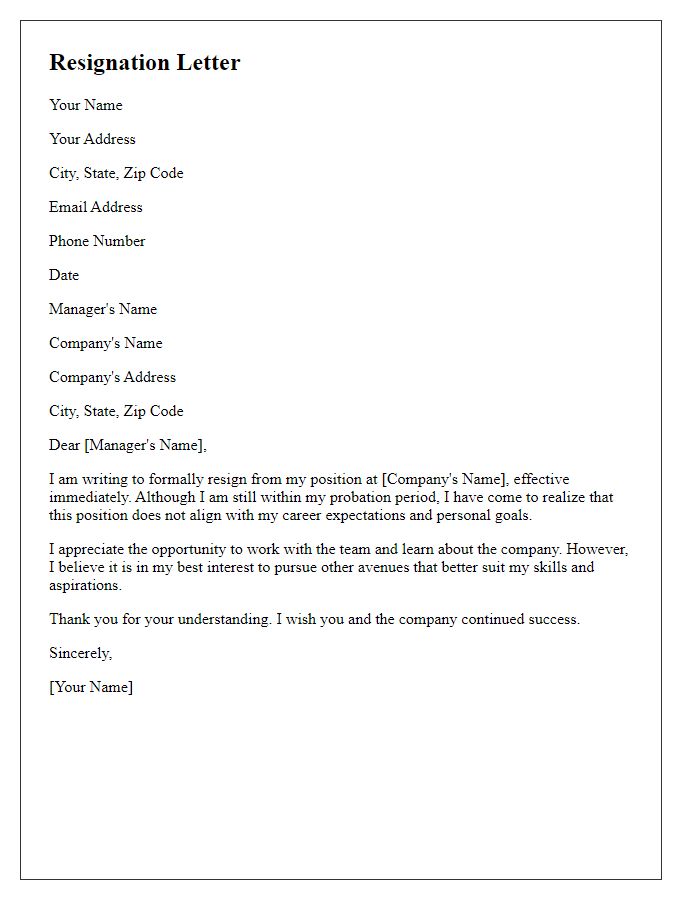
Letter template of resignation during probation period after a job offer
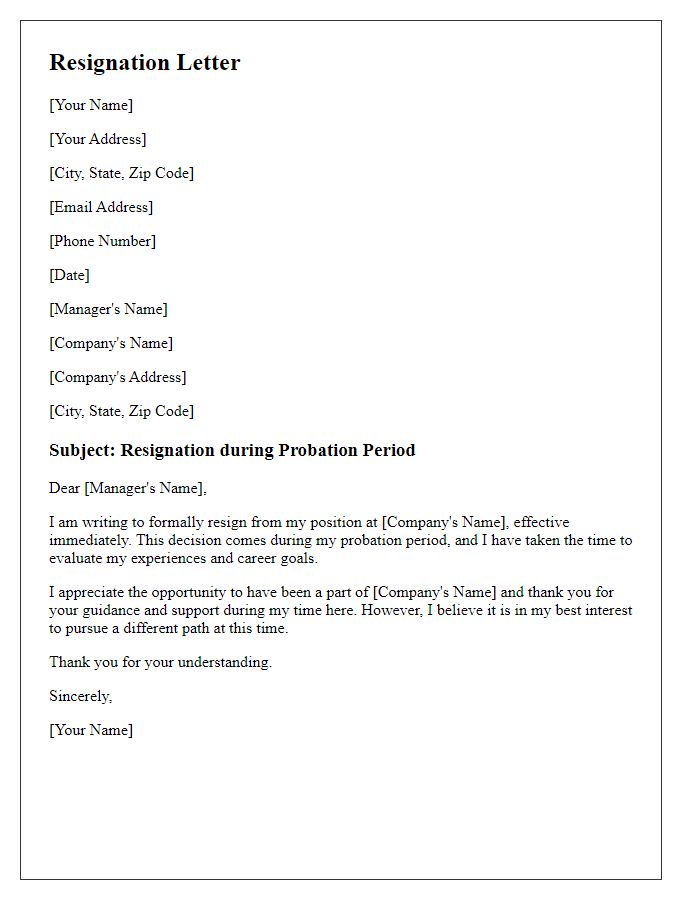
Letter template of resignation during probation period for career change
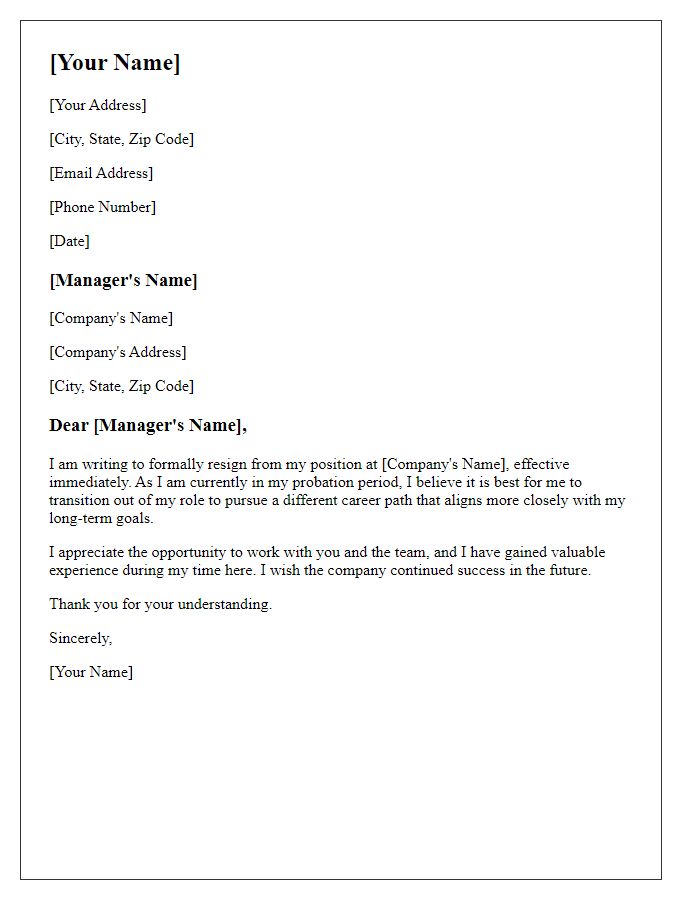

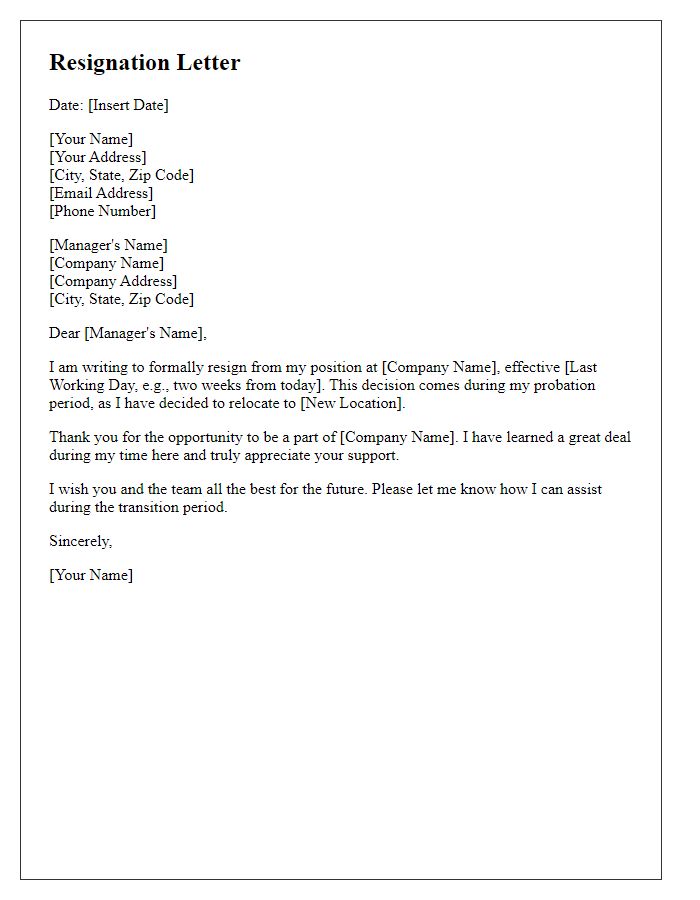
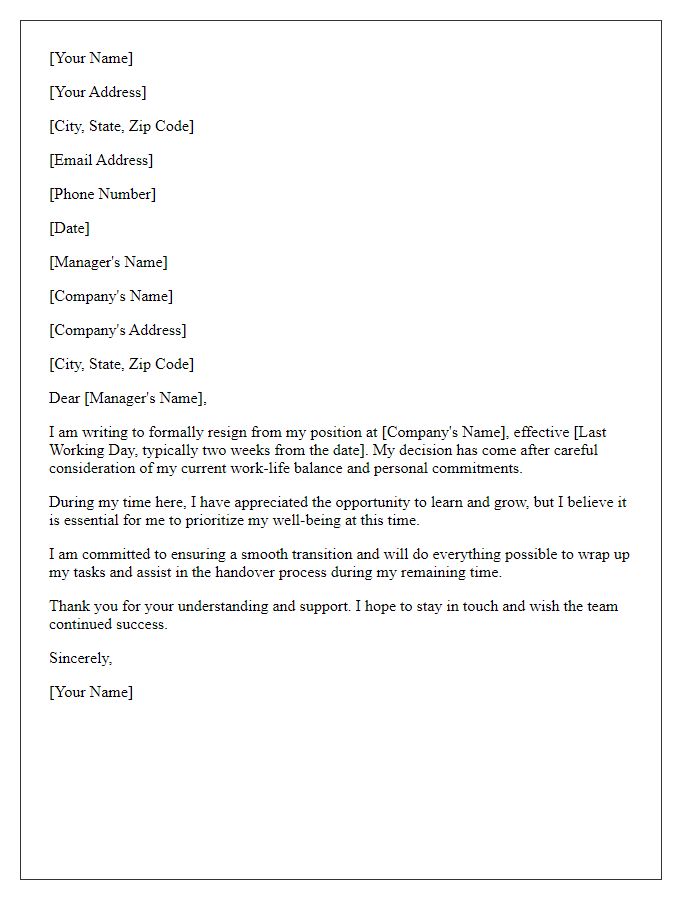


Comments